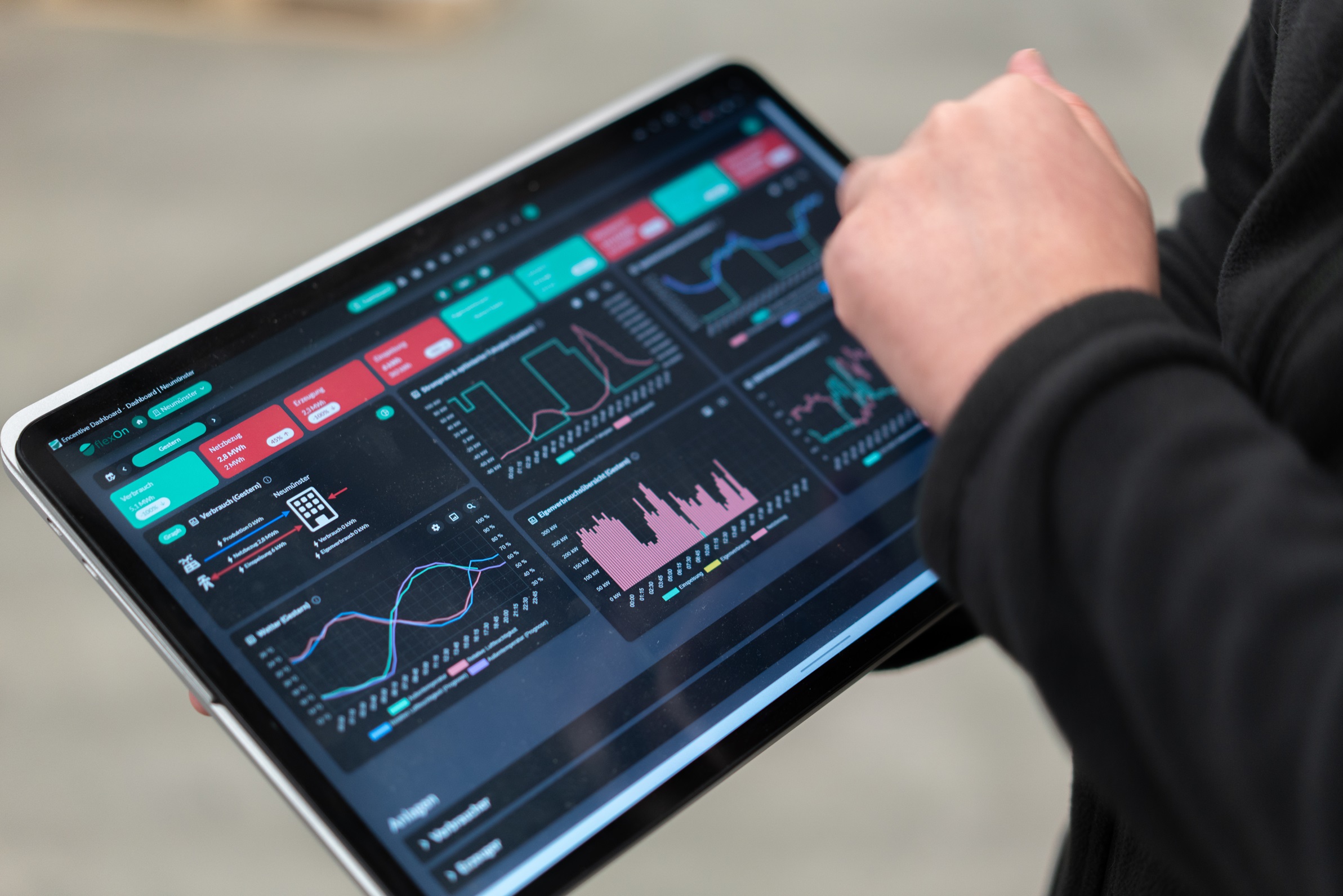Efficiency optimisation
What is efficiency optimisation?
Efficiency optimisation refers to the systematic process of using energy and other resources in a way that minimises losses and maximises savings potential – without compromising performance. The aim is to permanently reduce energy consumption, lower operating costs and at the same time minimise environmental impact.
In industrial environments, optimising existing processes through digital technologies is becoming increasingly important as companies seek to combine economic performance with sustainability.
What is energy efficiency?
Energy efficiency measures how much energy is required to deliver a specific output. The less energy a device, system or building consumes to achieve the same result, the higher its efficiency.
Examples:
- LED lighting instead of incandescent bulbs: same brightness, lower power use
- Thermal insulation: same indoor climate, lower heating demand
- Smart machine control: same output, optimised energy use
Energy efficiency is therefore a key element of any efficiency optimisation strategy – and an essential pillar of the energy transition.
What is the difference between energy efficiency and energy optimisation?
Although the terms are often used interchangeably, there is a clear distinction:
- Energy efficiency describes how much energy is required for a specific performance – for example, a motor that uses less electricity.
- Energy optimisation goes a step further: it involves the systematic control and adjustment of processes to minimise overall energy use, often without the need for new equipment.
In short: energy efficiency is the "what”, energy optimisation is the "how.”
What are energy efficiency measures?
Energy efficiency measures are specific technical, organisational or behavioural actions designed to improve efficiency. They range from upgrading outdated systems and optimising load control to changes in operational behaviour.
In commercial and industrial settings, digital systems are playing an increasingly important role. Based on real-time data, they identify optimisation potential and automatically implement efficiency improvements. Energy optimisation for companies means more than reducing operating costs – it also strengthens supply security and increases transparency in energy use.
Example of an energy efficiency measure
A practical example is the use of smart energy management in industry:
- Energy-intensive machinery operates only when grid conditions are favourable.
- Load peaks are avoided.
- Electricity consumption is dynamically aligned with production levels and grid capacity.
Such systems enable predictive, data-driven efficiency optimisation – without disrupting operations.
Why is efficiency optimisation so important?
Efficiency optimisation not only reduces energy costs in the long term but also strengthens supply security and competitiveness. For many companies, it has become a strategic lever in the face of volatile energy prices and ambitious climate goals.
Digital technologies open up new opportunities: through data analytics, intelligent control systems and automated load distribution, significant efficiency gains can be achieved – as emphasised by the German Federal Ministry for Economic Affairs and Climate Action in its study on digitalisation and energy efficiency.
Smart energy management is therefore becoming a foundation for a sustainable energy future.
Key benefits at a glance:
- Lower energy consumption
- Reduced CO₂ emissions
- Greater transparency and controllability
- Improved competitiveness
- Sustainable use of resources
More knowledge from our blog

The most important facts about energy efficiency for companies
The importance of energy efficiency for companies is constantly growing. Both environmental responsibility and cost savings have a decisive impact on their competitiveness. In this article, we take a closer look at the most important facts about energy efficiency and show how companies can improve it.

Why it pays to flexibilize your company's electricity consumption
Making electricity consumption more flexible is becoming increasingly important in industry. Companies are faced with the challenge of rising electricity prices, fluctuating energy generation and network utilization. Flexible electricity consumption can help to reduce costs and operate more sustainably. But what does that mean in practice?

Saving energy in companies made easy
Saving energy is becoming increasingly important for companies – not only for ecological reasons, but also for economic reasons. In this blog article, we will show you why it is worthwhile to reduce energy consumption, what measures you can take and how an energy management system can help.


